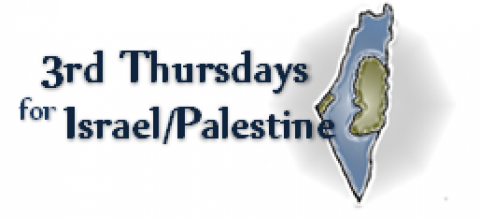
Organizations in the Faith Forum on Middle East Policy send out action alerts monthly, focusing on different issues so that members of Congress hear consistently that their constituents support a just and lasting resolution to the Palestinian and Israeli conflict.
Water can’t wait – Click here to ask Congress to support equal water rights for Palestinians and Israelis.
Two experiences in June involving access to water for West Bank Palestinians show “the serious harm that Israel routinely inflicts on residents of the Jordan Valley as it abuses its powers,” according to the Israeli human rights organization B’Tselem. On June 14, 2016 “the temperature recorded in the Jordan Valley surpassed 40°C (104°F). Nonetheless, Civil Administration personnel seized a tractor that was hauling a water tank in the Palestinian community of Khirbet Samrah, and left a demolition order for water reservoirs built by residents in the area of Khirbet al-Malih .”
- Muhammad Abu ‘Awad, a shepherd from Khirbet Samrah, explains, “We bring along a tractor hauling a water tank so the flock can drink. We get the water from faraway places like ‘Ein al-Beida and Kardalah, and it costs more than 20 shekels (5 USD) per cubic meter… On Tuesday, we were out grazing the flock with the tractor when suddenly a car drove up with a Civil Administration officer. He stopped the tractor. They confiscated it and took it to the military camp. This tractor is like an extra limb for me. I can’t give our flock water without it.”
- ‘Abd a-Rahman Khalil, a 70-year-old resident of Khirbet al-Malih, describes the impact of the demolition order for two springs: “About six years ago, the local council restored two springs here, in the al-Malih area. They cleaned them and fenced them in to keep away animals that contaminate the water. We were overjoyed. Suddenly we had a little bit of water…But then, “Civil Administration people came and left notices that they plan to demolish the two water reservoirs at the springs. If they do, it will be a disaster, because most people in the area rely on this water for the flocks and for their family consumption.”
A recent UN report covering a one-week period noted “the Israeli authorities issued multiple demolition and stop-work orders for lack of building permits, which are near impossible to obtain.” Two wells were among the structures targeted by the orders.
In Gaza the water crisis is dire. In its 2009 report, “Troubled Waters—Palestinians Denied Fair Access to Water,” Amnesty International described the depletion and contamination of the Coastal Aquifer in Gaza with the result that “90-95 per cent of its water is contaminated and unfit for human consumption.”
The discrepancy between water available to Israelis and to Palestinians is stark. For example, according to EWASH, a coalition of Palestinian and international organizations working on water and sanitation issues, “Palestinian average water consumption in the West Bank is already as low as 73 liters per capita per day, well below the World Health Organization minimum standard of 100, and clearly lower than the 240 liters to which Israelis have access.”
The unequal distribution of water, outlined in the Oslo II Interim Agreement and signed over 20 years ago, was meant to be temporary. An EWASH report explains, “The agreement maintained the status quo where the government of Israel maintains its controls over more than 70% of the water pumped from the Mountain Aquifer [in the West Bank]…Only 17% of the total share was allocated to the Palestinians.” The report goes on to say, “The overall imbalance of power outlined in the accords is reflected in a harsh reality on the ground, as twenty years later Palestinians are no closer to achieving their rightful share from the shared water resources.”
Water can’t wait. While a final status agreement between Palestinians and Israelis must include long-term provisions for the fair distribution of water, immediate action is needed now to address the critical water needs of Palestinians in the West Bank and Gaza.
Click here to ask your elected officials to urge Secretary of State John Kerry to work with Israeli and Palestinian officials to:
- Ensure equitable distribution of West Bank water resources
- Allow into Gaza materials needed to repair and build water and sanitation facilities, including fuel, and to fully lift the Gaza blockade
Tell your elected officials, water can’t wait! Take action today!
